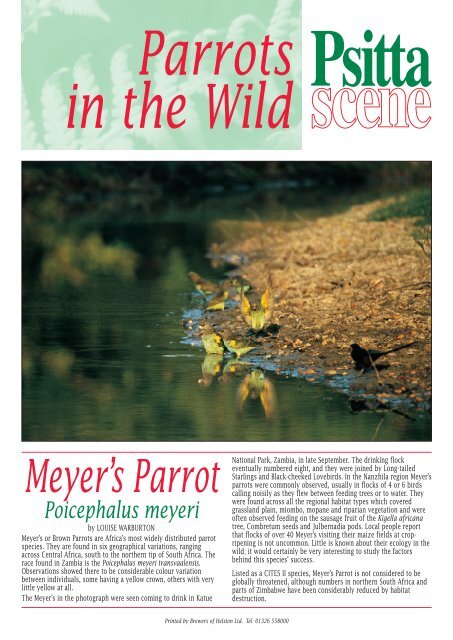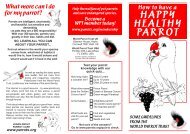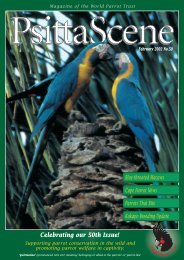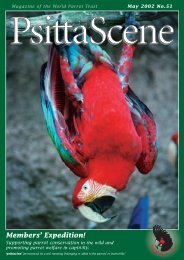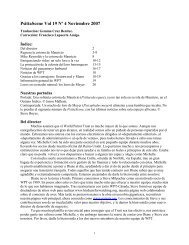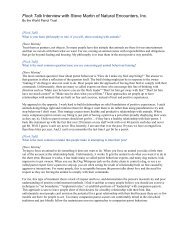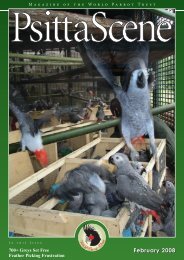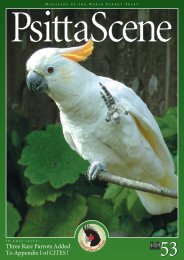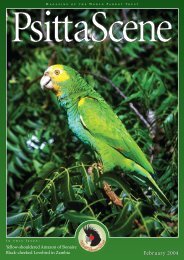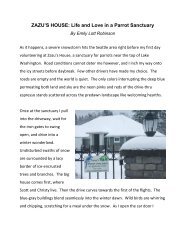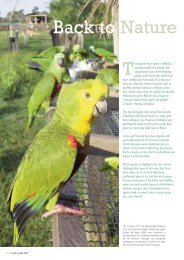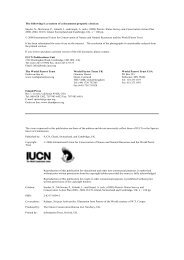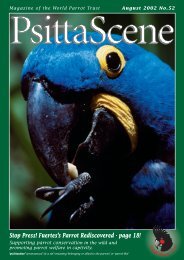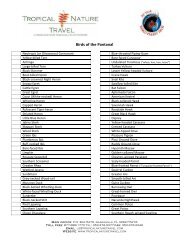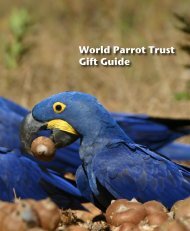Download - World Parrot Trust
Download - World Parrot Trust
Download - World Parrot Trust
Create successful ePaper yourself
Turn your PDF publications into a flip-book with our unique Google optimized e-Paper software.
<strong>Parrot</strong>s<br />
in the Wild<br />
Meyer’s <strong>Parrot</strong><br />
Poicephalus meyeri<br />
by LOUISE WARBURTON<br />
Meyer’s or Brown <strong>Parrot</strong>s are Africa’s most widely distributed parrot<br />
species. They are found in six geographical variations, ranging<br />
across Central Africa, south to the northern tip of South Africa. The<br />
race found in Zambia is the Poicephalus meyeri transvaalensis.<br />
Observations showed there to be considerable colour variation<br />
between individuals, some having a yellow crown, others with very<br />
little yellow at all.<br />
The Meyer’s in the photograph were seen coming to drink in Katue<br />
National Park, Zambia, in late September. The drinking flock<br />
eventually numbered eight, and they were joined by Long-tailed<br />
Starlings and Black-cheeked Lovebirds. In the Nanzhila region Meyer’s<br />
parrots were commonly observed, usually in flocks of 4 or 6 birds<br />
calling noisily as they flew between feeding trees or to water. They<br />
were found across all the regional habitat types which covered<br />
grassland plain, miombo, mopane and riparian vegetation and were<br />
often observed feeding on the sausage fruit of the Kigella africana<br />
tree, Combretum seeds and Julbernadia pods. Local people report<br />
that flocks of over 40 Meyer’s visiting their maize fields at cropripening<br />
is not uncommon. Little is known about their ecology in the<br />
wild; it would certainly be very interesting to study the factors<br />
behind this species’ success.<br />
Listed as a CITES II species, Meyer’s <strong>Parrot</strong> is not considered to be<br />
globally threatened, although numbers in northern South Africa and<br />
parts of Zimbabwe have been considerably reduced by habitat<br />
destruction.<br />
Printed by Brewers of Helston Ltd. Tel: 01326 558000


